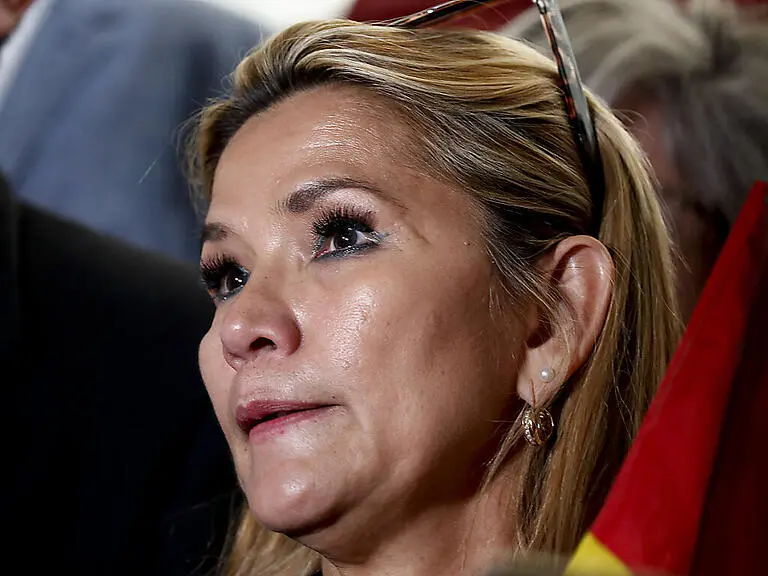Four years after Bolivia’s President Evo Morales was ousted, Jeanine Áñez, the former interim president, is on trial with 17 others.
They’re accused of incidents termed as genocide from November 2019 in areas near Bolivia’s capital, La Paz.
After Morales left, protests broke out. The military and police forcefully countered these protests, causing numerous casualties.
During these clashes, over 20 people died, and many were injured. The then-government backed these actions with a decree, offering immunity to force users.
Victims’ families, now part of the trial, face emotional pain. Gloria Quispe, mourning her brother Antonio’s death, speaks of her ongoing anguish.
She highlights the absence of psychological aid amidst constant hearings.
The Bolivian prosecutors are demanding a 30-year prison term for Áñez and the 17 co-accused, including ex-ministers and military heads.
However, some bereaved families feel this punishment falls short, not reflecting their loss.

Áñez, jailed since March 2021, calls these accusations overstated. She feels the term “genocide” doesn’t fit her actions.
Interestingly, not all involved in the lethal force decree face charges, sparking concerns from victims’ lawyers.
Besides Áñez, charges target former officials like Defense Minister Luis Fernando López and Hydrocarbons Minister Víctor Hugo Zamora.
As the trial advances, Áñez could face up to 30 years in prison. She’s already serving 10 years for different charges.
This trial remains a hot topic in Bolivia’s current socio-political debates.
Background
This trial serves as a pivotal moment in Bolivia’s recent history, encapsulating years of political upheaval that began with Morales’ controversial time in office.
Morales, Bolivia’s first Indigenous president, led the country for almost 14 years but faced opposition over alleged authoritarian tendencies and constitutional violations.
His removal set off a chain of events that placed Áñez in the interim role, further polarizing the nation.
Áñez’s term was marked by attempts to shift Bolivia’s policy stances, both domestically and internationally, which led to even more division.
Critics argue that her government’s authorization to use lethal force against protesters revealed an authoritarian streak, similar to the concerns raised about Morales.
These dynamics highlight the persistent struggles within Bolivia to establish a balanced political system that respects both authority and civil liberties.

